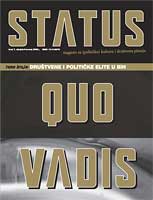

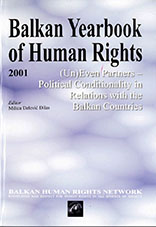
Savremeni međunarodni odnosi su prevashodno obeleženi procesom globalizacije čiji opseg i aktuelnost pridaju ovom procesu toliki značaj da je njegovo razmatranje neophodno; time se, međutim, zamagljuje drugi značajan proces koji uporedo postoji u međunarodnoj zajednici a to je proces internacionalizacije. I ovaj proces karakteriše uvećana povezanost i međuzavisnost koju pokreće kretanje kapitala, tehnologije, investicija, ideja i veza, ali je reč o zajedničkom delovanju nacionalnih aktera, javnih ili privatnih, na nivou koji prevazilazi nacionalne granice, koji služi kao dodatak naporima države da zadovolji potrebe svojih državljana, odnosno ostvari nacionalni interes. I dok globalizacija " ... oslobađa alternativne centre moći i uticaja koji su van kontrole država i izvan međunarodnih vladinih organizacija, koje nastaju na osnovu sporazuma država", internacionalizacija je sredstvo koje osposobljava nacionalne države da zadovolje svoj nacionalni interes u oblastima u kojima su one nesposobne da samostalno deluju. Tako je primarna odlika savremene internacionalizacije stvaranje regionalnih međunarodnih organizacija u geoekonomskim regionima (takav primer je NAFTA - North Atlantic Free Trade Agreement, APEC- Asia Pacific Economic Cooperation) ili u subregionima (ASEAN- Association of South East Asian Nations, Mercosur- Mercado Comun del Sur, i sl.), koje se odlikuju čvršćim povezivanjem ekonomija država članica, zapravo njihovom integracijom.
More...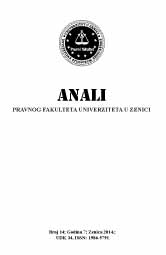
Keywords: Zakon o ugovorima o osiguranju; zakon o nadzoru osiguranja; evropsko pravo; privatno pravo; javno pravo; dogmatika; metode tumačenja; načelo sve ili ništa; načelo proporcionalnosti; načelo transparentnosti; informisanje; savjetovanje; lični podaci;
Zakonodavac u Njemačkoj je trebao 100 godina da reformiše ugovorno pravo osiguranja. Ovaj kontinuitet u odnosu na zaštitu potrošača izaziva pitanja za divergentnim interesama tržišnih snaga. Dok osiguravači kalkulacijama faktično vladaju nad menadžmentom rizika, potrošačima su pristupne informacije koje proizlaze u javnost. Dalji normativni indic za samostalnost prava osiguranja su opšti uslovi koji kraj originarnog ugovora regulišu ključne obaveze kao prijavljivanje rizika ili isplate naknade štete. Osiguravači se pozivaju na prirodu privatnog prava i načelo privatne autonomije, ali je sve jasnije, da privatno pravo ne postoji izolovano izvan hijerarhije normi i opštih pravnih načela. Povezanost sa javnim pravom je sve jača. Kraj nacionalnog okvira Evropska Unije utiče na pravo osiguranja u sve većoj mjeri. EU je bila inicijator reforme obligacionog prava u Njemačkoj. Tek poslije ove reforme je reformisano ugovorno pravo osiguranja i svejedno je preostala nadalje specifična materija. Više nije dovoljno znanje nacionalnog prava jer EU sa svojim direktivama u sektoru finansija postavlja nova mjerila, iako ograničene kompetencije trenutno ne dozvoljavaju intenzivniju harmonizaciju prava osiguranja. Heterogenost pravnih sistema na jednoj strani kao sličnost odredbi na drugoj ukazuje na velik obim pozitivnog prava u pojedinačnim državama. Sa Evropskim pravom su nastala specifična načela nadređenosti, lojaliteta ili effet utile. Ova supranacionalna dimenzija prava zahtijeva poznavanje metoda tumačenja, naročito u skladu sa primarnim i sekundarnim pravom.
More...
Keywords: positive-negative integration; European Convention for the Protection of Human Rights and Fundamental Freedoms; Charter of Fundamental Rights; European Union Agency for Fundamental Rights (FRA); European Instrument for Democracy and Human Rights (EIDHR).
Responding to criticisms and discussions about the non-existence of European Union’s human rights policy, the article claims that this policy exists although it has been developing inconsistently both at the level of the Union’s internal affairs and at the level of its relations with third countries. The second key hypothesis of the article refers to the institutional implementation mechanisms of the Union’s human rights policy which, according to the author, require new positioning and better coordination. The article firstly analyses the development of the human rights policy in the Union’s internal affairs from the Stauder Case in 1969 to recent discussions on the legal force of the Union’s Charter of Fundamental Rights and the accession of the Union to the European Convention for the Protection of Human Rights and Fundamental Freedoms. The second part of the article gives an overview of human rights policy development in the Union’s external relations from the Fourth Lomé Convention to the European Neighbourhood Policy. The paper ends with an analysis of the features common to the Union’s human rights policy implementation mechanisms focusing on the role of the Commission, the Parliament and the Council of the Union. The article points to the lack of institutional harmonisation using the European Instrument for Democracy and Human Rights as an example and sees in the establishment of the EU Agency for Fundamental Rights the need to introduce changes in the implementation of the human rights policy. In a conclusion, the author identifies the complexity and fragmentation of the Union as a system on the one hand and, on the other hand, the omnipresence of human rights protection and promotion in the Union’s public policies as the key factors encumbering the control over the human rights policy implementation and the cause of its perceived deficit.
More...
Keywords: Yugoslav-Greek relations; The Protocol of 1928; E. Venizelos; King Aleksandar Karađorđević
Diplomatic rapprochement between Kingdoms of the Serbs, Croats and Slovenes and Greece that materialized in the signing of the 1928 Protocol, undoubtedly contributed to the endeavors to establish the new order in the Balkans that was represented by aspirations of the Balkan countries to establish mutual international cooperation coupled with their tendencies to avoid the Great Powers` influence. The obvious change in the diplomatic communication between the Kingdoms of the Serbs, Croats and Slovenes and Greece was realized after the solution of the conflicting issues had been reached, which separated the two countries throughout the prehistory of their diplomatic relations. Despite the remarkable infl uence that the Great Powers had on them, the diplomatic initiatives of the offi cial representatives of the two countries (Eleftherios Venizelos and Alexandar Karađorđević, King of Yugoslavia), played the crucial role in Greco-Yugoslav diplomatic shift, but also in establishing the new course in international cooperation. A moderate change in the Greek attitude to the Great Powers had as its direct consequence the toning down of differences between Belgrade and Athens. The Treaty between Greece and Italy , as well as diplomacy of Greek Prime Minister, decisively infl uenced the positive outcome of negotiations with the Kingdom of SCS, contributing in that way to the already mentioned restoration of the Greek diplomatic infl uence in the Southeastern Europe, as well as to that country’s exit from the diplomatic isolation, in which it had remained after the expedition to Izmir and the catastrophe in Asia Minor in 1922. Despite the fact that the rapprochement between Greece and Yugoslavia represented a single step in the process of implementation of initiatives for the new peace policy in the Balkans, its importance in the change of the established balance between French and Italian systems of treaties , was very important. Resolution of relations between the Kingdom of SCS and Greece, as well as the signing of the treaty between Greece and Italy , represented a signifi cant factor, as well as the basis for the restoration of the Greek negotiating infl uence in the Balkans. The signing of the Protocol of 1928 represented the beginning of the golden age, that lasted for the last four years of the Elefherios Venizelos`s Government.
More...
Keywords: september; Slobodan Milosevic; Serbia;
Political situation in Serbia after Milosevic's regime.
More...
Keywords: Ontologie; Freiheit; gleichheit; Politik; ereignis; Natur; entfremdung;
In diesem aufsatz werden ontologische ansätze und Folgen von Russeauschen Freiheitsgedanken - die in seinen Schriften oft im Hintergrund bleiben - zum ausdruck gebracht und entwickelt. Nachdrücklich wird ein ontolologischer aspekt der Russeauschen Radikalität hervorgehoben, in dem ein Bruch mit der Naturbande, ein sogenannter ausgang aus dem Naturzustand und Schliessen des gesellschaftsvertrags untrennbar von seiner auffassung der Freiheit, gleichheit und politischen Handeln zu verstehen ist. es stellt sich heraus, dass die völlige entäusserung zum radikalen Bruch mit der Natur führt. ein unnotwendiges auftauchen des allgemeinen Willens, wie auch entstehung der Freiheit qua Selbstgesetzgebung wird als ereignis der Politik ausgelegt, derer bedingung und gesetz allgemeine gleichheit ist.
More...
Keywords: Serbia; corruption
More...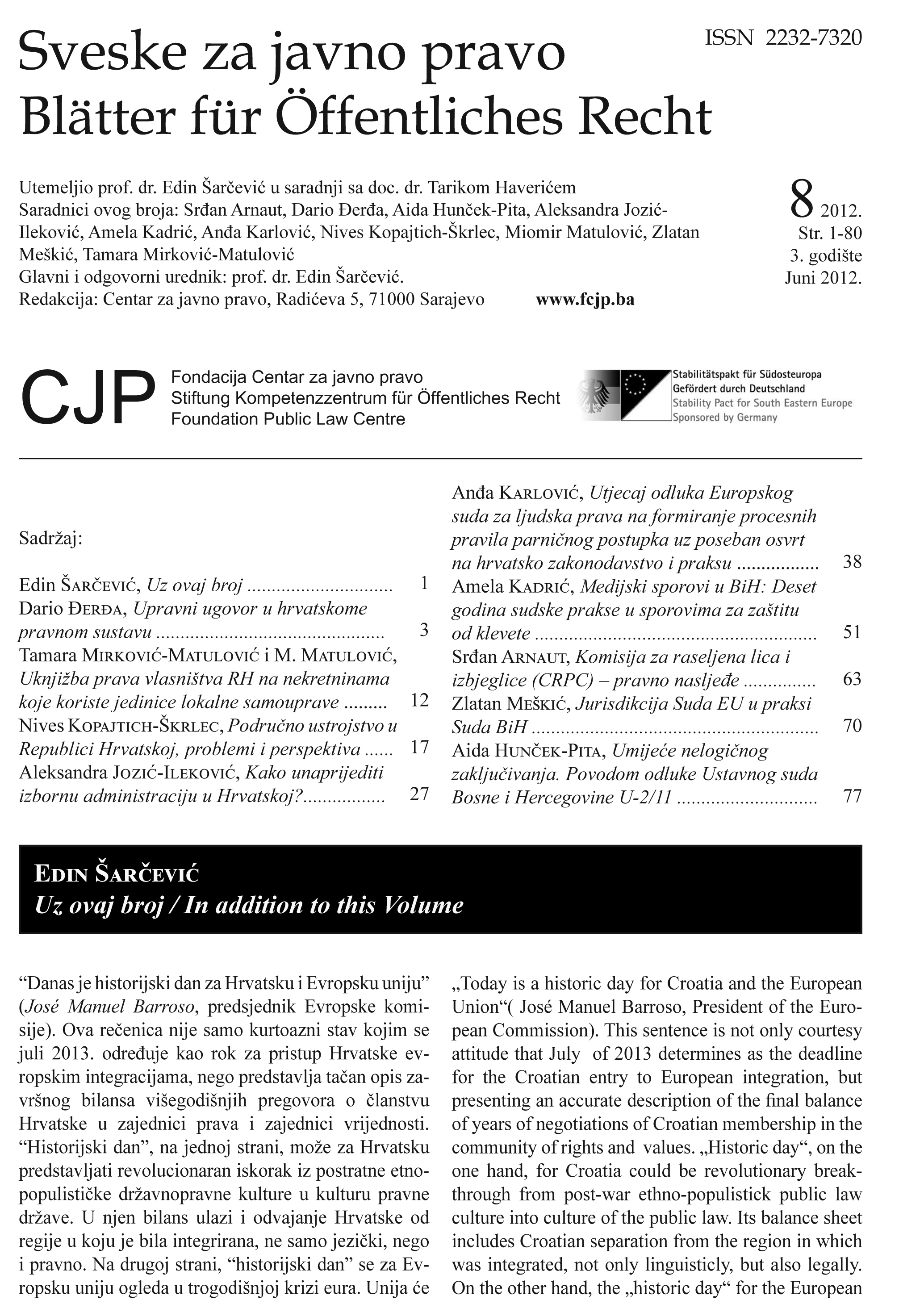
Keywords: Bosnia and Herzegovina; EU; EU Court; Jurisdiction; Law;
Zakon o konkurenciji BiH (ZK)1 donesen je u okviru procesa usklađivanja nacionalnog zakonodavstva sa Pravom EU. Po uzoru na primarno pravo EU, konkretno na čl. 101-109 Ugovora o funkcionisanju Evropske unije (UFEU), ZK štiti lojalnu konkurenciju od zabranjenih sporazuma između privrednih subjekata (čl. 4 ZK), zloupotrebe dominantnog položaja na tržištu (čl 10. ZK) i zabranjenih koncentracija (čl. 13 ZK). Konkurencijsko vijeće je isključivo nadležno za odlučivanje o postojanju povrede ovog zakona (čl. 21 ZK). Stranka nezadovoljna odlukom Konkurencijskogvijeća može pokrenuti upravni spor pred Sudom BiH (čl. 46 st. 2 ZK). Odluke vijeća za upravne sporoveSuda BIH konačno preispituje apelaciono odjeljenje Suda BIH.
More...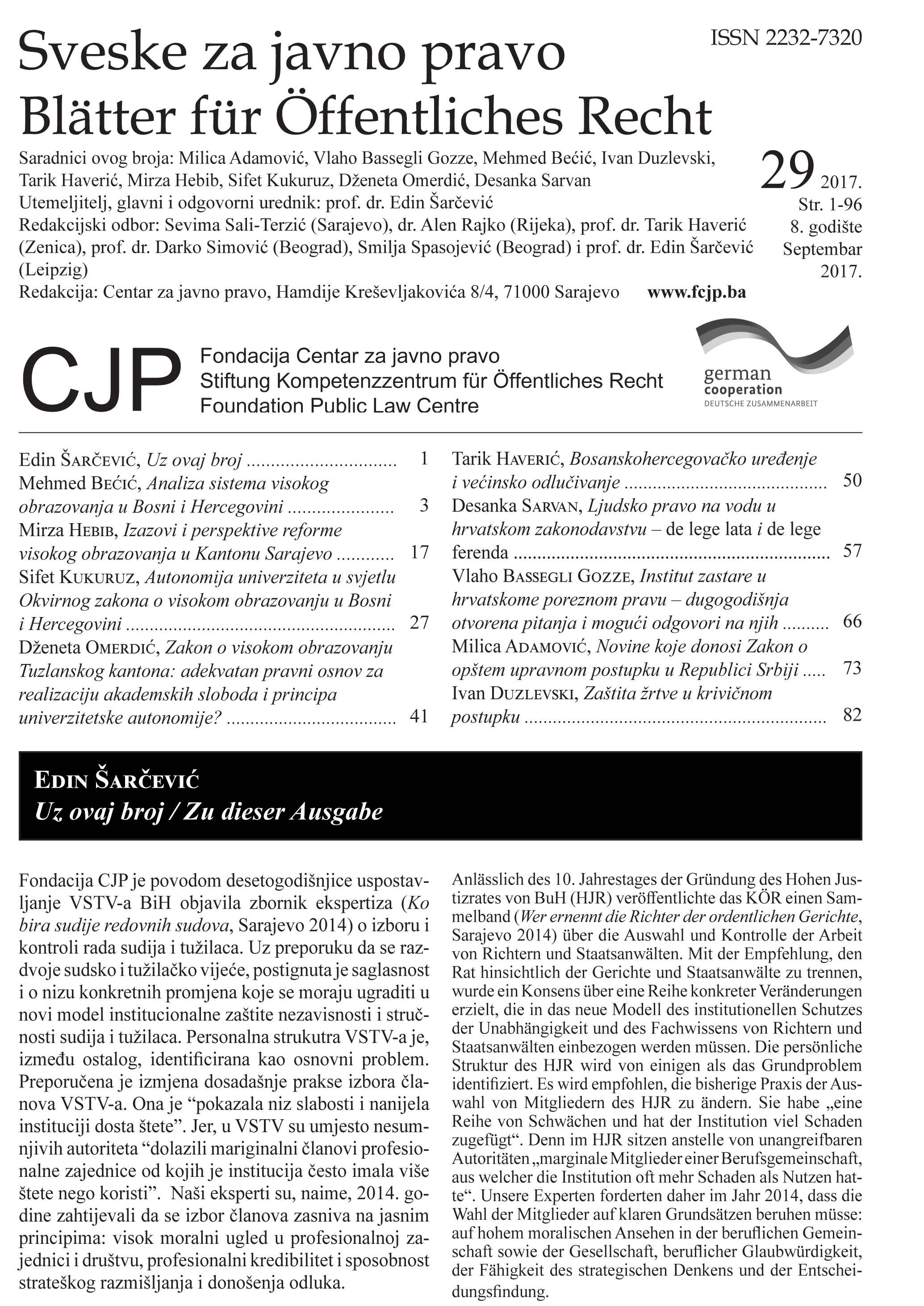
Keywords: Law;cLaw on General Administrative Procedure; Serbia;
Normiranje procesnih pravila u skladu sa kojima su dužni da postupaju organi uprave i drugi subjekti sa javnim ovlašćenjima su nezaobilazna pretpostavka pravne države. Ključni pravni oslonac javne uprave u svakoj uređenoj, efikasnoj i delotvornoj državi je propis koji uređuje opšti upravni postupak. U Republici Srbiji je Ukazom Predsednika Republike od 1. marta 2016. godine proglašen novi Zakon o opštem upravnom postupku (u daljem tekstu: novi ZUP), koji je donela Narodna skupština Republike Srbije 29. februara 2016. godine. Početkom primene novog ZUP, od 1. juna 2017. godine, prestaje da važi Zakon o opštem upravnom postupku (u daljem tekstu: stari ZUP), donet u vreme Savezne Republike Jugoslavije.
More...Keywords: UAE; employment visa; employment permit; sponsor; migrant; Ministry of labour and Social Affairs;
This text is about labour migration to the Unated Arab Emirates but also about terms and conditions of employment. in the present, labour migrations have reached enormous proportions. Although the most common type of migrations used to be the ones within borders of a country, the ones from smaller to bigger towns, nowadays, it has become far more common for citizens to leave their country, their home and their family in order to migrate abroad for employment. For these reasons, this article in the first part explains the terms and conditions required for a work Permit, reasons for it’s loss and confiscation and the ways of sponsoring foreign nationals which is characteristic for UAE. The second part of the text is about the most common reasons for labour migration, working conditions but also about the life people are facing when leaving their mother country and moving to UAE.
More...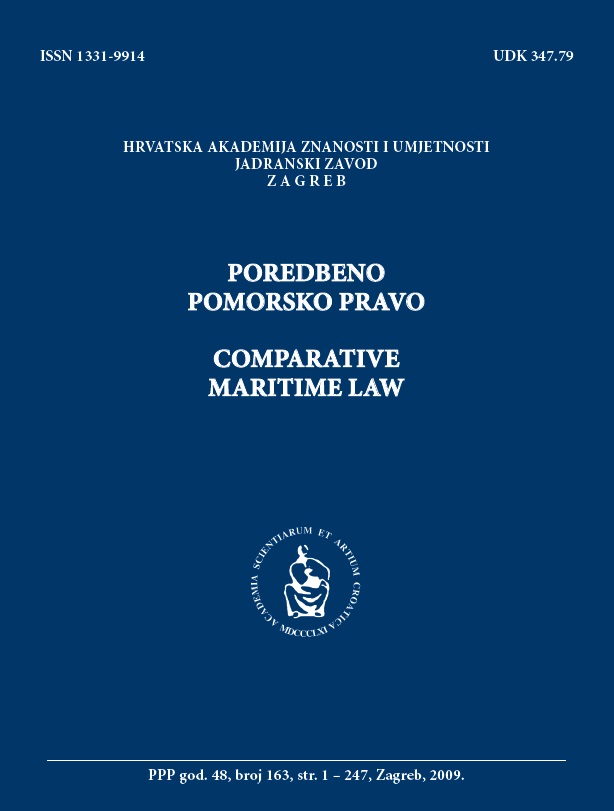
Keywords: consignment note (waybill); transport (carriage) of goods; eCMR;1999 Montreal Convention; 1929 Warsaw Convention; CMI Uniform Rules for Sea Waybills;
This article presents the consignment note (waybill) in inland, sea and air transpor tlaw, according to international conventions and national laws of Serbia and Croatia. In the introductory remarks, the authors define the consignment note, the different types of the consignment note and its principal functions. The subsequent analysis concerns: the issuance (number of copies and conditions of validity), the contents of the consignment note (mandatory data, other data and reserves) and the form of the consignment note (written and electronic). It is also shown how the consignment note is regulated under EU law. Due regard is given to the Additional Protocol on CMR convention (eCMR), which concerns the electronic consignment note. The aim of the article is to present a profound and comprehensive comparative analysis of the current legal situation with regard to the consignment note.
More...Keywords: Council for Combating the Corruption; media; influence on media; institutions of public sector; Republic of Serbia; marketing; public relations; report;
Savet za borbu protiv korupcije Vlade Republike Srbije analizirao je mogući uticaj institucija javnog sektora na medije putem plaćanja usluga oglašavanja i marketinga za period od 2011. do 2014. godine i sastavio o tome izveštaj sa 24 preporuke koji je dostavljen na postupanje Vladi Republike Srbije. Savet je od 124 državne institucije tražio dostavu informacija o uslugama marketinga, oglašavanja, PR uslugama, uslugama promotivnih i medijskih kampanja, usluga izrade i održavanja veb sajtova, sponzorstava/donatorstava ili poslovno-tehničke saradnje koje su ugovorene i realizovane počev od 2011. do kraja 2014. godine. [...]
More...Keywords: Civil Rights; Property Law;
Власник стана не може имати правни интерес да се на сопственом стану утврди његово право закупа у смислу Закона о становању, јер је право власништва јаче и подразумева апсолутно располагање власника својом ствари (да је држи, користи, ставља у промет итд.), док се својство закупца може одредити само на туђем стану, односно стану у друштвеној својини.
More...
Keywords: Kingdom of Yugoslavia; german citizens; trial; "new state"; interwar period; Versailles Treaty;
The Treaty of Versailles, concluded at the end of the First World War, introduced a new term in international law, that of the "new state". The division of states into old and new was made in connection with the rights of certain countries to claim compensation for war damage. The old states from the group of (he "allied powers" were allowed to secure compensation for war damage in a number of ways, including that of liquidating the property of German citizens on their territory. The new states belonging to the same group did not have this right since they did not exist at the time of the war and, consequently, could not have suffered any damage as a result of it. In the event any of the new stales did liquidate the property of their German citizens the latter could seek help from the Joint Elective Court in Geneva. The Versailles Treaty did not, however, specify the names of the countries considered to be new. The government of the Kingdom of the Serbs, Croats and Slovenes thought their country belonged in the group of old stales and liquidated the property of German citizens on Yugoslav territory, while the German citizens, on the other hand, considered the kingdom to be a new stale and filed a complaint before the Court in Geneva. The Court ruled in favor of the Kingdom of the Serbs, Croats and Slovenes. Several eminent legal experts publicly expressed their opinion in the past in regard to this dispute and the essential question whether Yugoslavia was an old state or a new one. Opinions differed in regard to this question but they were quite unanimous in concluding that the decision of the Court in Geneva was just.
More...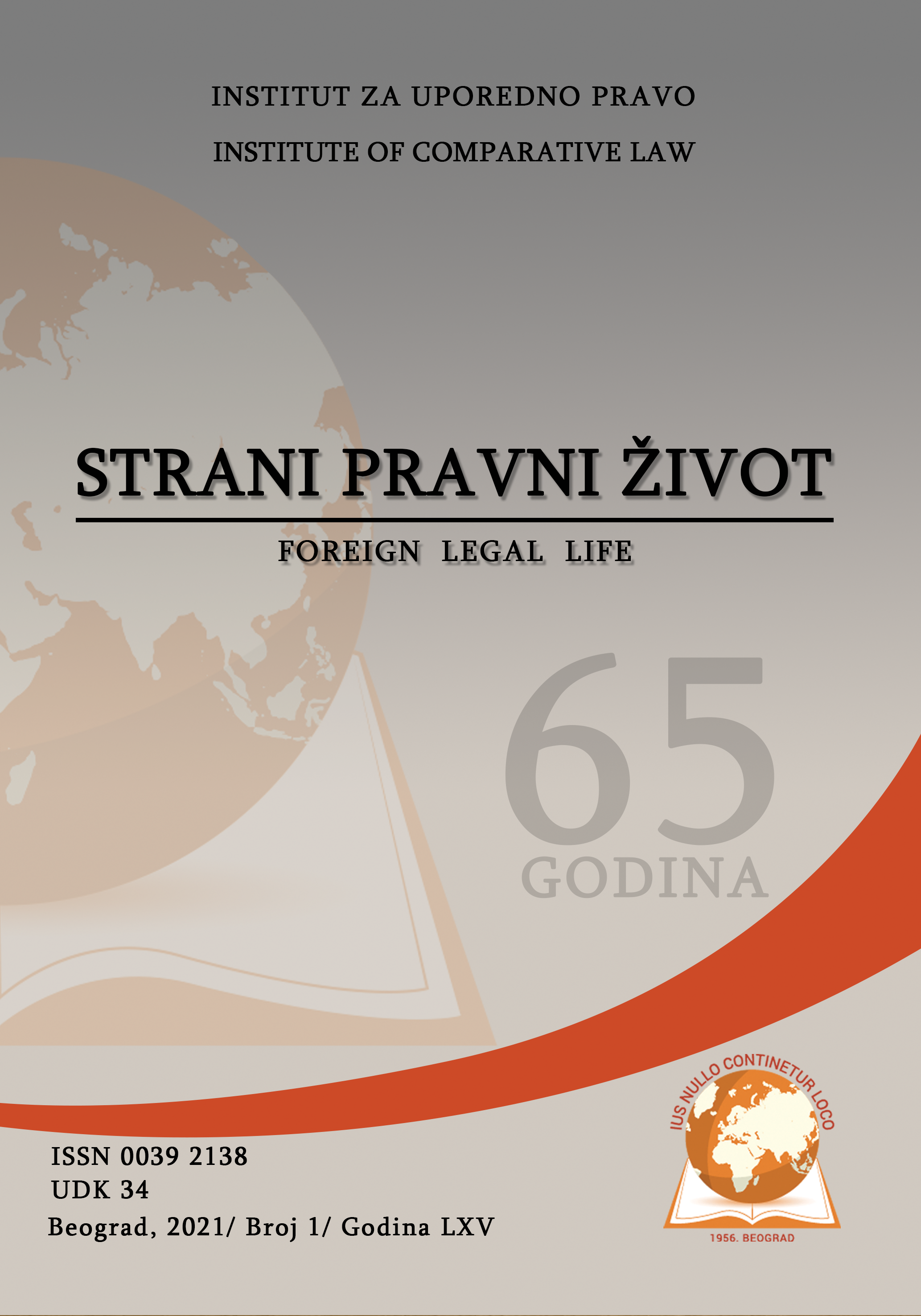
Keywords: self-employed persons; semi-dependent employees; employees; dismissal; labour law protection
In this paper the rights of employees and self-employed persons and the distinction between them are analysed, with the special focus on dismissal protection. Using the comparative and normative method, the author analyses these legal questions in legal systems in Spain, Austria, the United Kingdom of Great Britain and Nothern Ireland, and the United States of America, including the existence of the mid-category of semi-dependent self-employed persons in the first three abovementioned jurisdictions and practical consequences of their existence.Dismissal protection of self-employed persons represents a legal question that is not sufficiently researched in comparison to the dismissal protection of employees. The hypothesis of the author in this paper has been based on the opinion that self-employed persons who work for others are justifiably deprived of dismissal protection, unlike semi-dependent self-employed persons who are unjustifiably deprived of it, especially because the second mentioned category does not experience entrepreneurial risks and chances. Also, the question of dismissal protection of self-employed persons is very relevant when we consider the amount of misuse of this occurrence and cost savings which employers often have when employing them. In the end, de lege ferenda solutions and their implications for other legal systems are proposed by the author of the paper.
More...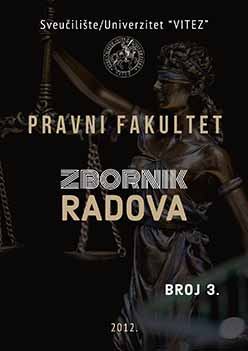
Keywords: legal transaction; law; civil law;
Legal transaction is a legal fact which leads to the formation, termination or change in law. From Roman law and the creation of categories of legal work, they have evolved and progressed in line with the modernization of legal transactions. They were adapted to the legal affairs and their forms bearing in mind growing need for rapid transfer of ownership rights, borrow funds, to forcibly carry out unfulfilled obligations. In a formal sense, the legal transaction is a voluntary individual legal act of non-state entity. Approved by and binding upon the authority of the legal order. Typical contents of a legal transaction is the individual disposition that requires the consent of person creating the transaction. Legal transaction occurs in various areas of law: employment law, international public law, family law, inheritance law, and in all branches of property law. If a legal transaction occurs in the field of economy, and property relations, than we discusses has civil law nature. Civil law transaction may be divided into civil affairs in the strictest sense, and the business law transactions. The first group is regulated by norms of civil law, the second- by norms of civil law. Differences between these two types of civil law transaction, are rather of technical rather than substantive nature.
More...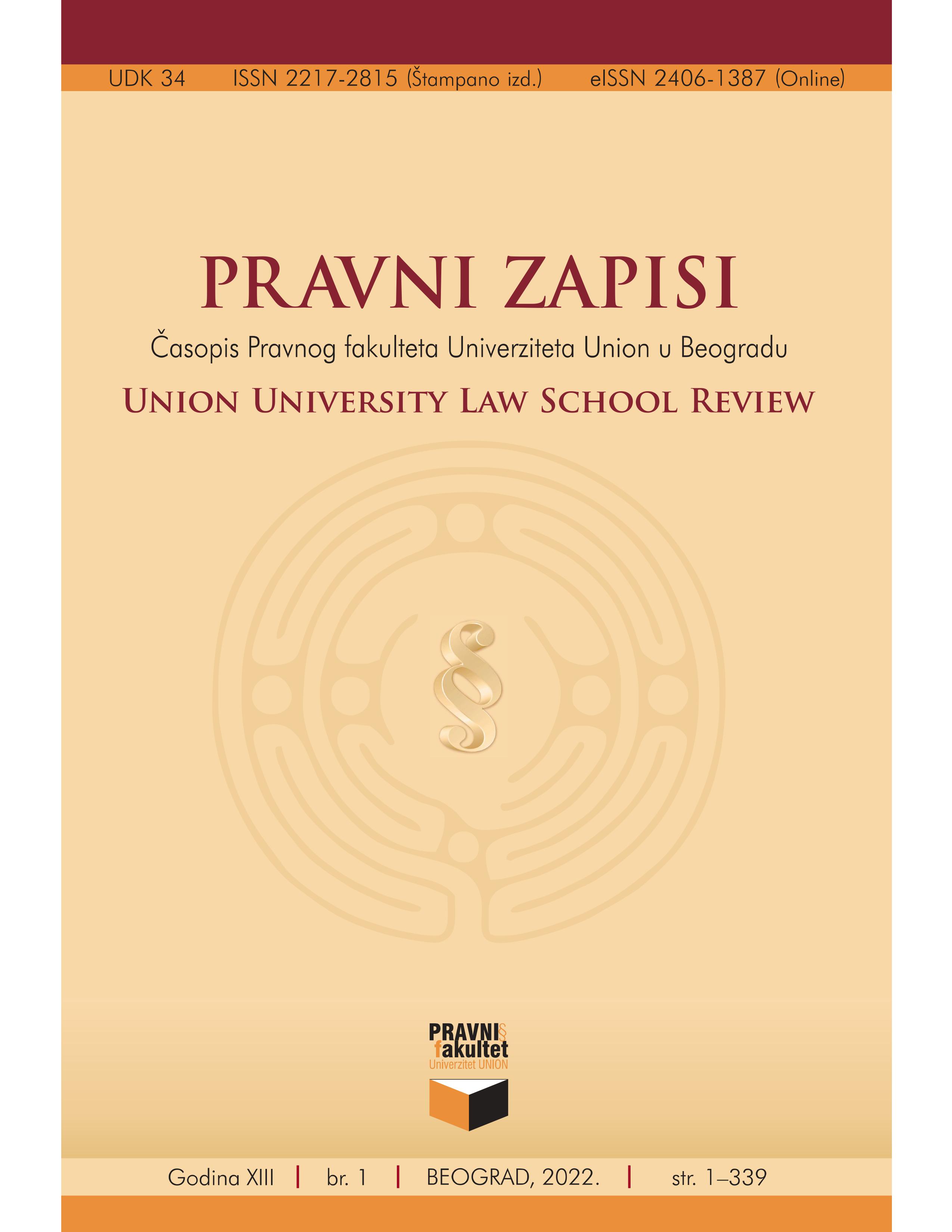
Keywords: same-sex relationships; registered partnership; international jurisdiction; same-sex union; qualification; conflict of law rule; filling the legal gap
Registered partnership is not regulated in the Serbian legal system, nor are there special conflict of law rules for this institute in the Law on resolving conflict of laws with regulations of other countries (the Serbian PIL Act). Therefore a question of conflict of law treatment of foreign registered partnership in the Serbian private international law is raised. In order to discover adequate conflict of law rule for determination of applicable law for the termination, personal and property effects of this relationship, the author examines if it is possible to do that through qualification or through creation of a new conflict of law rule in accordance with Article 2 of the PIL Act, which regulates filling the legal gaps. The author also points out to some conflict of law aspect of same-sex relationship (registered partnership) in cases with foreign element, if it is legalized in the Serbian legal system.
More...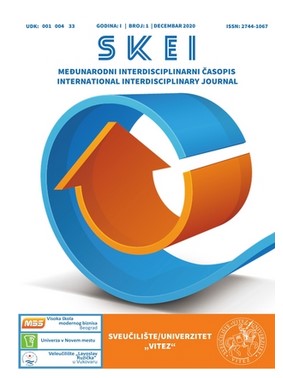
Keywords: business ethics; business; ethical behavior; business success;
Nowadays, when the word ethics is mentioned, only few still believe in the authenticity and fairness of society and competition. That is precisely the reason why all the advantages and disadvantages of business ethics and ethical behaviour are explored in this paper. The term of business ethics, what business ethics can do for business, the principles of business ethics, the factors affecting business ethics along with the main problems of business ethics are addressed in the paper. Today, business is taking place globally and the competitive advantage and achievement of certain goals through profitability increase is the goal of each organization. To make the mentioned possible, it is necessary for organizations, as well as for every individual within the organization, to adhere to ethical principles i.e. informal rules and regulations in business conduct. By adhering to ethical business, organizations facilitate their overall business operations in complicated market conditions. The purpose of this paper is to show how the implementation and importance of ethics in the business life of an organization can contribute to better business performance and healthier market competitiveness.
More...